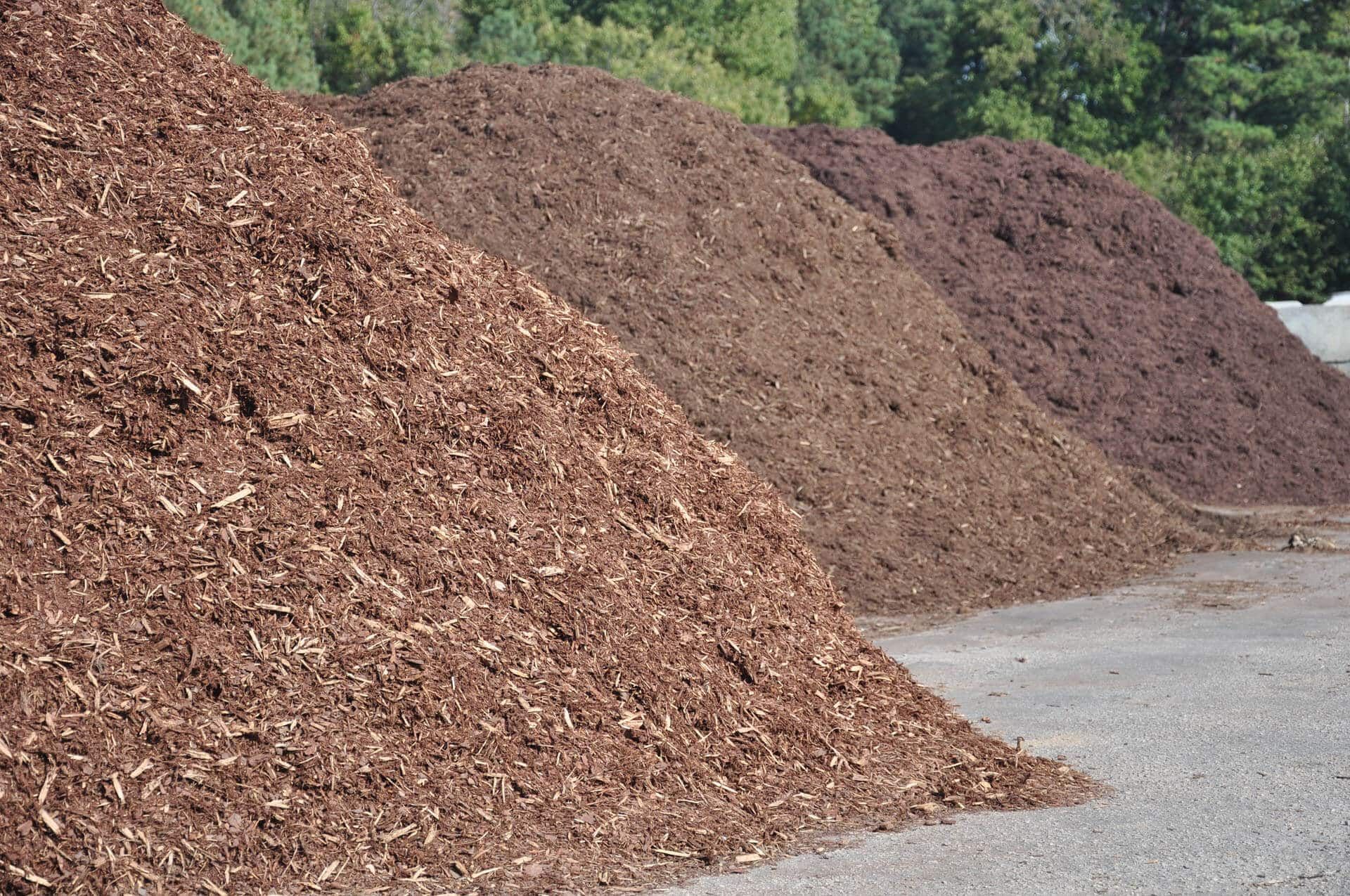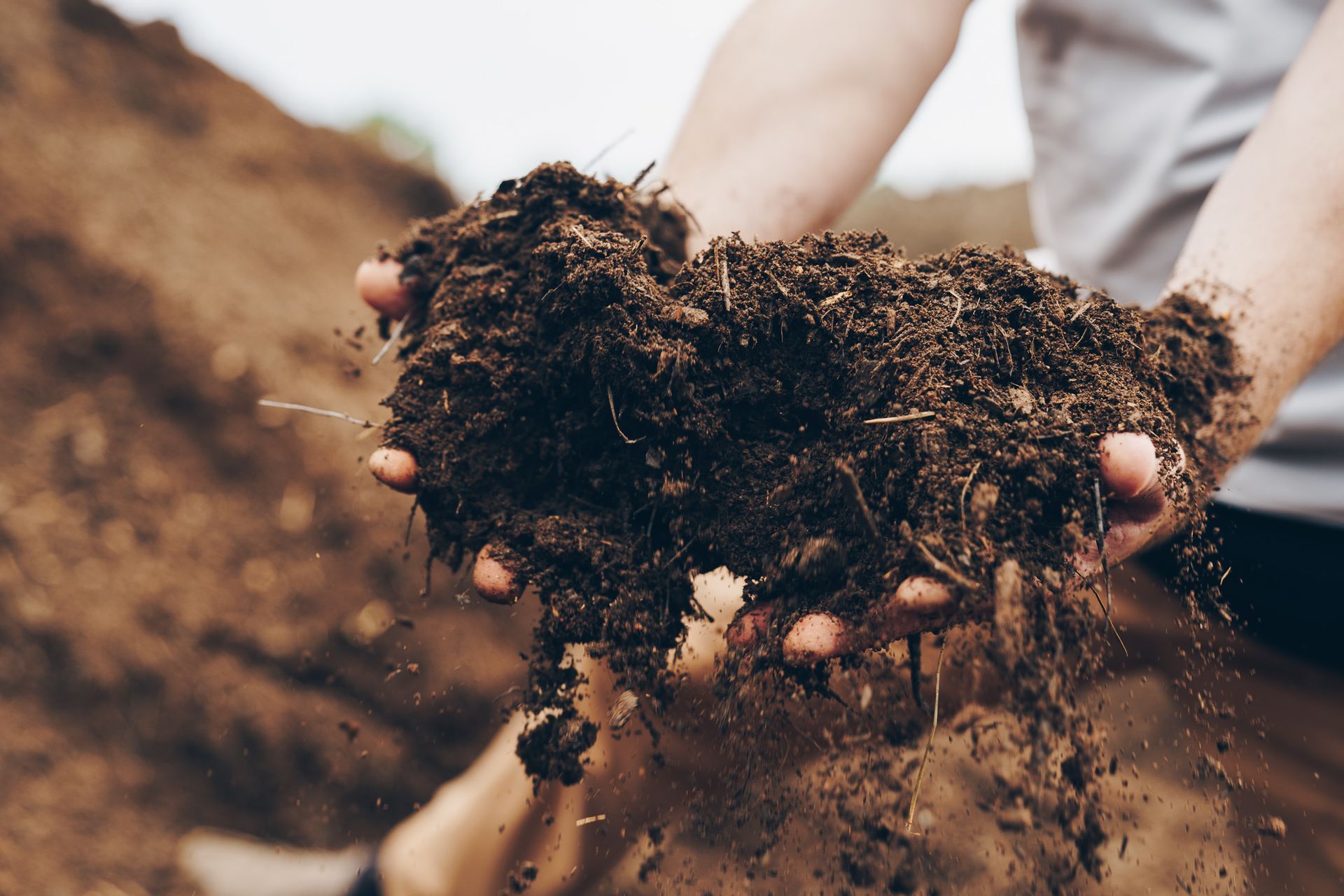Find Mulch Near Me: Your Guide to Locating Quality Mulch for Your Landscaping Needs
Find Mulch Near Me: Your Guide to Locating Quality Mulch
When it comes to maintaining a beautiful and healthy landscape, quality mulch is an essential component. Not only does it enhance the aesthetic appeal of your garden, but it also plays a crucial role in maintaining the health of your plants and soil. If you're wondering where to find mulch near you, this comprehensive guide will provide you with all the information you need to locate quality mulch for your landscaping needs.
Understanding the Importance of Quality Mulch
Before we dive into the details of finding mulch suppliers, let's first understand why quality mulch is so important. Mulch acts as a protective barrier for your soil, shielding it from harsh weather conditions and extreme temperatures. It helps to retain moisture and regulate soil temperature, which is crucial for healthy plant growth.
But what exactly does quality mulch do for your garden? Let's explore further.
The Role of Mulch in Landscaping
Mulch offers numerous benefits to your landscape. In addition to its protective qualities, it also helps to control weed growth by preventing sunlight from reaching weed seeds. This means less time spent pulling out unwanted plants and more time enjoying your garden.
Furthermore, mulch enhances the overall appearance of your garden, giving it a neat and well-maintained look. Imagine a garden with beautifully mulched flower beds, where the colors of the flowers pop against the dark, rich mulch. It adds a touch of elegance and sophistication to any outdoor space.
But the benefits don't stop there. Mulch also reduces soil erosion, preventing valuable topsoil from being washed away during heavy rains. This is particularly important on slopes or areas prone to erosion.
Additionally, mulch promotes healthy root development. It creates an ideal environment for roots to grow by providing insulation and protection. As a result, plants are better equipped to absorb water and nutrients from the soil, leading to stronger and more resilient plants.
Benefits of Using High-Quality Mulch
When it comes to mulch, quality matters. High-quality mulch not only provides all the benefits mentioned above but also contributes to the overall health of your plants.
One of the key advantages of using high-quality mulch is its ability to improve the soil structure. As the mulch breaks down over time, it adds organic matter to the soil, making it more fertile and improving its ability to retain moisture. This is particularly beneficial for clay soils, which tend to be heavy and compacted.
Furthermore, quality mulch adds nutrients to the soil as it decomposes. This natural fertilization process helps to nourish your plants, promoting vigorous growth and vibrant blooms.
In addition to improving soil structure and providing nutrients, high-quality mulch also enhances microbial activity. Beneficial microorganisms, such as bacteria and fungi, thrive in the organic matter of the mulch. These microorganisms play a crucial role in breaking down organic matter and releasing nutrients into the soil, creating a healthy and balanced ecosystem.
Lastly, using quality mulch ensures that you are not introducing weed seeds or harmful chemicals into your garden. Low-quality mulch may contain weed seeds that can germinate and compete with your plants for resources. It may also contain chemicals or pesticides that can harm beneficial insects and pollinators. By choosing high-quality mulch, you can have peace of mind knowing that you are creating a safe and sustainable environment for your plants and the ecosystem as a whole.
So, when it comes to mulch, don't settle for anything less than the best. Choose high-quality mulch to reap the full range of benefits it provides and give your garden the care it deserves.
Different Types of Mulch for Your Garden
Now that we've established the importance of quality mulch, let's explore the various types available for your garden.
When it comes to choosing the right mulch for your garden, you have a variety of options to consider. Mulch not only enhances the aesthetic appeal of your garden but also plays a crucial role in maintaining soil moisture, preventing weed growth, and regulating soil temperature.
Organic vs. Inorganic Mulch
Organic mulch is derived from natural sources such as bark, wood chips, straw, and leaves. It gradually decomposes, adding valuable organic matter to your soil. This decomposition process enriches the soil, improving its structure and fertility. Organic mulch also acts as a natural insulator, protecting plant roots from extreme temperatures.
In contrast, inorganic mulch includes materials like rubber, plastic, or stones. While inorganic mulch doesn't break down, it offers long-lasting weed control and moisture retention properties. It is particularly useful in areas where you want to minimize maintenance and maximize durability.
Mulch Varieties and Their Uses
There are several types of mulch, each with its own unique characteristics and uses. Let's take a closer look at some popular options:
1. Hardwood Mulch: Made from shredded hardwood, this mulch is versatile and works well in most landscapes. It provides excellent weed suppression and moisture retention, making it a popular choice for flower beds, shrub borders, and tree bases.
2. Pine Bark Mulch: Ideal for acid-loving plants such as azaleas, rhododendrons, and blueberries, pine bark mulch helps create an acidic environment in the soil. It also improves soil drainage and prevents compaction.
3. Cocoa Hull Mulch: Made from the outer shell of cocoa beans, this mulch adds a rich, dark color to your garden while suppressing weeds. It has a pleasant chocolate aroma and is often used in decorative areas, such as around trees and shrubs.
4. Straw Mulch: Commonly used in vegetable gardens, straw mulch helps retain moisture, prevent soil erosion, and suppress weed growth. It also acts as an insulator, protecting delicate plant roots from extreme temperatures.
These are just a few examples of the many types of mulch available for your garden. It's important to consider factors such as your specific plant needs, climate, and aesthetic preferences when choosing the right mulch for your garden.
Remember, mulch not only serves a functional purpose but also adds visual appeal to your outdoor space. So, take the time to explore different options and find the perfect mulch that will enhance the beauty and health of your garden.

How to Identify Quality Mulch
Now that you're familiar with the different types of mulch, it's important to know how to identify high-quality mulch.
Key Characteristics of Good Mulch
Good mulch should be dark in color, indicating that it has naturally decomposed. It should have a pleasant, earthy smell and a fine texture. The mulch particles should be uniform in size and free from foreign objects such as plastic or glass. Additionally, good mulch should be free from pests, diseases, and weed seeds.
Red Flags to Avoid When Buying Mulch
When purchasing mulch, there are a few red flags to watch out for. Avoid mulch that appears excessively dry, as it may lack the moisture retention properties you need. Mulch with a strong, foul odor may indicate improper decomposition or contamination. Lastly, mulch that is excessively heat-treated or colored may contain harmful chemicals that could harm your plants.
Locating Mulch Suppliers Near You
Now that you know what to look for in quality mulch, it's time to find a supplier near you.
Tips for Finding Local Mulch Suppliers
Start by asking for recommendations from friends, neighbors, or local gardening clubs. They may have firsthand experience with reputable mulch suppliers in your area. You can also visit 770-Tree-Guy, as they often carry a variety of mulch options. Additionally, you can consult online directories or search engines to find local mulch suppliers.
Online Resources for Mulch Shopping
If you prefer the convenience of online shopping, there are several websites that offer mulch delivery services. Simply browse their selection, choose the type of mulch you need, and have it delivered right to your doorstep. However, be sure to read customer reviews and verify the quality and reputation of the online supplier before making a purchase.
Making the Right Mulch Choice for Your Landscaping Needs
Now that you have a better understanding of quality mulch and how to locate it, let's discuss how to make the right mulch choice for your specific landscaping needs.
Matching Mulch to Your Plant Types
Consider the specific needs of your plants when choosing mulch. Some plants prefer acidic soil, while others thrive in alkaline soil. Research the plants in your garden and select a mulch that aligns with their requirements. For example, pine bark mulch is an excellent choice for acid-loving plants such as azaleas or blueberries.
Considering Climate and Soil Conditions in Your Mulch Choice
Climate and soil conditions also play a significant role in choosing the right mulch. If you live in an area with hot, dry summers, mulch with excellent moisture retention properties, such as wood chips or straw, may be beneficial. On the other hand, if you have heavy clay soil that tends to retain moisture, a more porous mulch, like pine needles or gravel, can help improve drainage.
By taking into account the specific needs of your plants and your local climate and soil conditions, you can select the perfect mulch for your landscaping needs.
In conclusion, finding quality mulch near you doesn't have to be a daunting task. Armed with the knowledge of its importance and the different types available, as well as tips for identifying quality and locating suppliers, you can confidently choose the right mulch for your garden. Remember to consider your plants' needs and your local climate and soil conditions when making your selection. With the right mulch, you can enhance the beauty of your landscape and provide optimal conditions for healthy and thriving plants.


